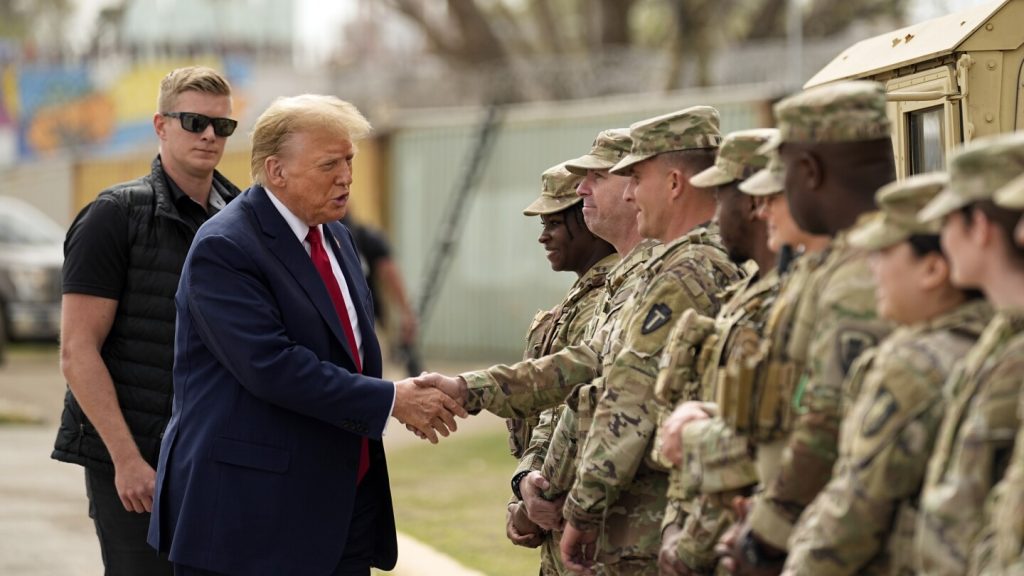President Donald Trump and his allies are gearing up to potentially expand the role of the military in domestic affairs if he wins a second term. This would involve recalling American troops stationed overseas and deploying them at the U.S.-Mexico border, as well as potentially using the military for domestic policy priorities such as deportations and civil unrest. This shift in the military’s role could have significant implications for both the country’s standing in the world and the traditional restraints on domestic use of the military.
Trump has been vocal about his plans to take forceful action against immigrants without permanent legal status, describing certain areas as “war zones” controlled by gangs and vowing to restore order. He has also expressed concerns about potential threats to Election Day and has hinted at using the military to address internal challenges, referring to ideological enemies within the country. These statements have raised concerns about the militarization of domestic issues and the potential erosion of civil liberties.
The Trump administration’s plans to shift military resources and priorities, including potentially deploying the National Guard and active-duty military for immigration enforcement, have sparked alarm among human rights advocates and civil liberties organizations. There are fears that using the military in such capacities could lead to mass raids and other extreme measures reminiscent of past injustices. Despite these concerns, many Republicans in Congress support Trump’s agenda, arguing that tough action on immigration is necessary to protect national security.
The proposed plans to move military assets from abroad to deal with domestic issues could further deepen existing divides within the Republican Party, specifically between those who support traditional foreign policy approaches and those aligned with Trump’s isolationist stance. Some Republicans have voiced support for Trump’s tough rhetoric on immigration and view his plans as necessary responses to domestic challenges. However, there are differing opinions on the extent to which the military should be involved in such operations, with disagreements over the appropriate roles of various government agencies.
The potential use of military forces for deportation and border security raises concerns about the erosion of constitutional norms and legal safeguards. Trump’s administration may need to invoke emergency or wartime powers to carry out these actions, raising questions about the legality and constitutionality of such measures. Democrats in Congress have expressed alarm at the lack of guardrails on how the military could be used if Trump wins a second term, highlighting the need for legislative oversight and protections for civil liberties.
As the 2024 election approaches, the role of the military in domestic affairs has become a contentious issue. While some Republicans support Trump’s plans to use the military for immigration enforcement and border security, others are wary of the potential consequences of such actions. The debate over the military’s involvement in domestic policy underscores broader divisions within the GOP and reflects ongoing tensions over national security, immigration, and law enforcement. The outcome of the election will likely have significant implications for the future direction of U.S. military policy and the balance of power between the executive branch and Congress.


